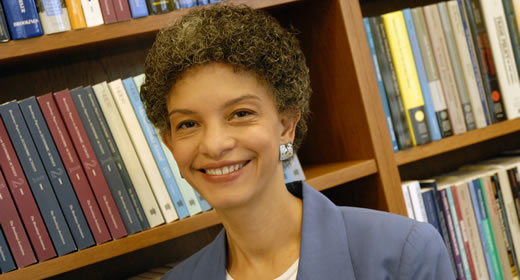
The first few days of President Trump’s administration have seen our faculty appear in newspapers and media outlets around the world.
Professor Marina v.N. Whitman, a nationally regarded expert on the U.S. auto industry, is quoted in an AP story about the president’s proposed border tax that has been picked up by more than 300 news outlets across the country. Professor Alan Deardorff is cited in an LA Times story about the president’s intent to renegotiate NAFTA. Professor Betsey Stevenson contributed to a Bloomberg piece on ‘17 metrics to watch during the Trump administration.’ The list goes on.
As the country watches the President’s early moves on a broad range of policy platforms, Ford School faculty members have provided much-needed data, insights, and analysis—and they will continue to do so going forward. This type of engagement is a key part of our mission at the Ford School.
Of course, policy engagement goes well beyond the illumination of national conversations. Our faculty are also launching and leading programs designed to tackle urgent policy challenges, and they are producing top-notch research that will prove useful to policy leaders in the years ahead.
Our new Youth Policy Lab, for example, has just put out its very first call for proposals. A partnership between Ford School faculty (Brian Jacob and Susan Dynarski) and faculty at the Survey Research Center (Robin Tepper Jacob), the lab is designed to provide much-needed technical assistance to agencies and organizations that serve Michigan’s youth. U-M’s Poverty Solutions initiative, led by Luke Shaefer and designed to test models aimed at reducing poverty, recently announced its first nine grant recipients, as well. Many of these projects will take place in Detroit, and were designed collaboratively with community partners working on relevant programs in the city. And our Applied Policy Seminar students, now called Strategic Public Policy Consulting or SPPC, under the leadership of Associate Dean Elisabeth Gerber, are knee deep in policy research projects for a range of local, state, national, and international organizations.
Importantly, our faculty are also producing research findings that we hope will prove useful to policymakers in the years ahead. Susan Dynarski and Katherine Michelmore recently wrote about a new measure of poverty that allows policy leaders to identify the schools and students most vulnerable to educational disparities. Paula Lantz wrote recently about early results from Pay for Success programs designed to address serious health disparities. Barry Rabe has explored the reemergence of state trust funds in the shale gas era—a method some states are using to avoid the boom/bust cycles normally associated with resource extraction.
I am so proud to have spent the last nine-and-a-half years serving as dean of a school so passionately dedicated to solving some of society’s toughest challenges. On February 9, at our annual DC student-alumni networking event, I’ll participate in a discussion with Alumni Board Chair Keith Fudge (MPP ‘09) of the Urban Institute, in which I’ll say much more about this wonderful community of aspiring public servants, game-changing scholars, and real-world policy leaders. The title of our talk: “The past, present, and future of policy education.” If you’re in or around the capitol then, I do hope you’ll join us.
In the meantime, thank you: for all you do in the world, and for all you do to support your alma mater and its students.
We are so very grateful.
